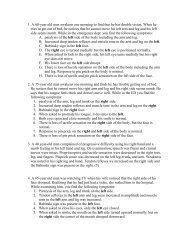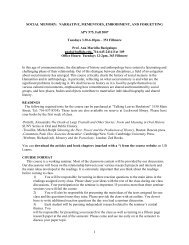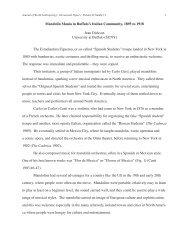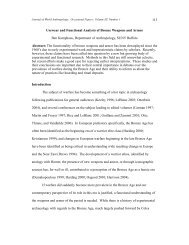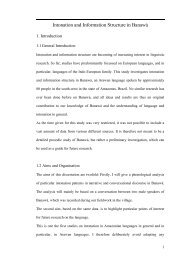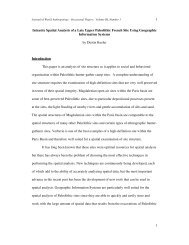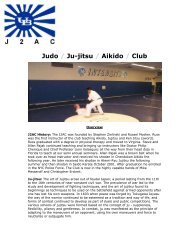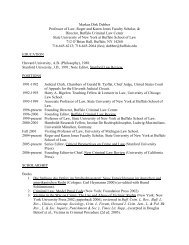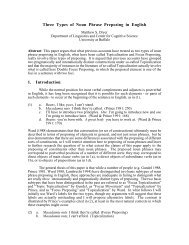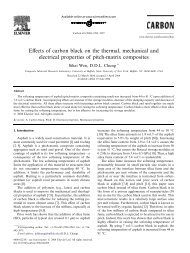Electrophysiological Evidence for Sentence Comprehension - Wings
Electrophysiological Evidence for Sentence Comprehension - Wings
Electrophysiological Evidence for Sentence Comprehension - Wings
Create successful ePaper yourself
Turn your PDF publications into a flip-book with our unique Google optimized e-Paper software.
similar words or pseudo-words. Quick naming also showed lower scores, as all tests in<br />
which time dimension was critical. Discrimination between phonologically similar words<br />
proved to be good. At least, this is a good indication that the children included in the<br />
study did not have perceptual problems. As the children were included in therapy, better<br />
results on tests that did not require quick reaction indicate learned, explicit knowledge<br />
instead of automatic acquired skills.<br />
Morphology and syntax proved to be affected in all children, but <strong>for</strong> at least two children<br />
problems in morphology could be explained as a consequence of poor phonological<br />
skills, as these children were diagnosed as phonological SLI. Mixing cases was<br />
frequently recorded <strong>for</strong> all children. In tests in which prefixes had to be added to the verb<br />
root in order to derive perfective meaning children with SLI regularly used compensatory<br />
mechanisms to convey the perfective meaning and avoided the target verb <strong>for</strong>m:<br />
describing a picture on which a rabbit was digging a carrot, SLI children correctly used<br />
the imperfective <strong>for</strong>m. However, when the picture showed the rabbit with the carrot dug<br />
out, the SLI children typically answered that the rabbit finished digging, avoiding the<br />
target <strong>for</strong>m (he dug it out). All SLI children showed poor skills on sentence repetition<br />
task. Usually, they would drop out all words that were not crucial <strong>for</strong> the basic meaning<br />
of a sentence, in most cases adjectives and adverbs.<br />
Lexical skills are also affected in the group of SLI children. Synonyms proved to be<br />
especially difficult; children recognized 1 to 3 out of 9 synonyms while recognizing 5 to<br />
8 homonyms (out of 15), <strong>for</strong> example. On Peabody Picture Vocabulary Test SLI children<br />
130



